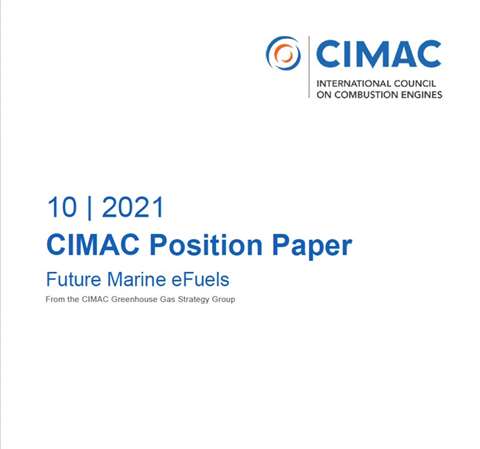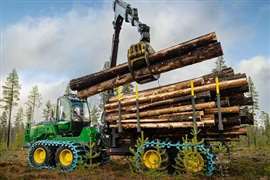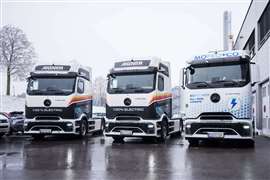CIMAC paper: No ‘silver bullet’ yet for decarbonizing international shipping
20 October 2021
Legal framework needed
While net-zero and zero-carbon fuels are key to the decarbonization of international shipping, there’s “no silver bullet in sight yet,” according to a new position paper from CIMAC.
The new position paper by the CIMAC Greenhouse Gas Strategy Group gives an overview of which eFuels are most relevant for future propulsion systems from today’s point of view and comments on policy measures to promote the uptake of these fuels.
 A new position paper on future marine efuels now has been published by the CIMAC Greenhouse Gas Strategy Group. The intention of the paper is to indicate which eFuels are most relevant for future propulsion systems from today’s point of view, and comment on policy measures to promote the uptake of these fuels.
A new position paper on future marine efuels now has been published by the CIMAC Greenhouse Gas Strategy Group. The intention of the paper is to indicate which eFuels are most relevant for future propulsion systems from today’s point of view, and comment on policy measures to promote the uptake of these fuels.
“Decarbonization of international shipping is achievable and a harmonized legal framework is needed. The recently published IPCC report emphasizes the urgency of pursuing a global reduction in CO2 emissions as early as the 2020s,” said Dirk Bergmann, the chairman of CIMAC’s Greenhouse Gas Strategy Group. “We now need to identify and describe the steps necessary to reach the goal. We are keen to support this process in a targeted manner. The selection of the right fuel plays a very central role here since net-zero and zero-carbon fuels represent the biggest lever to achieve climate-neutral shipping.
The paper looks at the different fuel options but also expresses that a definite and predictable legal framework promoting the development and scaling of (net) zero-carbon fuels is essential to secure the necessary high investments of the coming years.
“This legal framework needs to be homogenous and consistent, and ideally is defined on a global level,” said Peter Müller-Baum, CIMAC Secretary-General.
According to the report, future marine fuels will have to meet a certain number of criteria to be competitive with their fossil counterparts and suitable for long-distance shipping:
- based on renewable energy sources
- high energy density
- available on a global scale within defined and standardized qualities, respective rules and regulations (well-to-wake approach2 )
- suitability for use in the engine and propulsion systems existing or expected to be developed
- availability of infrastructure for production, logistic and bunkering
- cost competitive in the long term
“While these requirements may limit the fuel options in the future, there is no silver bullet in sight yet,” the report states. “It is rather unlikely that a clear indication on one or two major fuel options in 2040 or 2050 becomes realistic within this decade. Nevertheless, it is possible to discuss the potential of eFuels as it focuses on long term viable and scalable options.”
The report adds the contribution of sustainably produced biofuels (gas or liquid) as a future zero-carbon energy source for deep-sea shipping can play a role in particular for the transition period, as long as volume constraints are solved without compromising the sustainability.
“However, while we see biofuels as a useful bridging technology, we are not addressing them in this position paper,” the report states.
CIMAC said it will continue to closely follow the discussions around IMO, MEPC, and GHG preventions and comment as needed. The CIMAC strategy group on Greenhouse Gas will also publish white papers soon to look into the details of different options and technologies. The topic will certainly play a major role during the CIMAC World Congress in Busan, Korea that will take place from June 13-17, 2022.
Supporting documents
Click links below to download and view individual files.
POWER SOURCING GUIDE
The trusted reference and buyer’s guide for 83 years
The original “desktop search engine,” guiding nearly 10,000 users in more than 90 countries it is the primary reference for specifications and details on all the components that go into engine systems.
Visit Now
STAY CONNECTED




Receive the information you need when you need it through our world-leading magazines, newsletters and daily briefings.
CONNECT WITH THE TEAM













